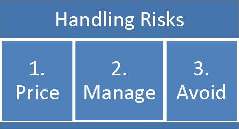When my daughter and her family lived in Clearwater and I lived in Kentucky (but did most of my work in Florida), I opened banking accounts with let’s call them Bank X. I had accounts with a Kentucky bank, but spending over half of my time in Florida made it necessary to bank in both places. That was around 8 years ago.
Since I opened that account, I’ve not heard from Bank X except to get normal statements and notified when my checking account balance was low and money was transferred from savings to cover a debit card purchase or a check that I’d written. For all of these years, I’ve been charged $14 per month for the privilege of using Bank X, and being subjected to their other fees…debit card fees, overdraft fees, paying for checks, low-low savings account interest, mysterious and inappropriate charges by international businesses on my debit card(s), etc. AND, when I married Angie, it almost took 3 pounds of paperwork to add her to my accounts. Seriously, copies of marriage license, drivers’ licenses, social security card, applications, background check and a personal appearance just to add her to my existing accounts?
A couple of months ago, she hit a wall with them and told me to find another bank or wash dry and fold my own clothes. I did a ton of online research which boiled down to three banks. Then, I called each bank on the phone to get a feel for them and decided to give Wells Fargo a try. I would have preferred that they were a Florida bank, but I didn’t get everything that I wanted and the tradeoffs are worth it so far.
One of my telephone interview questions was, “Why should we choose your bank over another.” Without taking a breath, Dawn Reprogel answered, “Me. As your personal banker, I make the difference.” That kind of self-confidence is comforting. It shows that personal responsibility that I mentioned a few posts ago. And, it says to me that she is my kind of service provider.
We spent several hours opening accounts primarily because Dawn tried so hard to identify our needs and tailor her products to meet them. During that visit, Dean Friedman gave us a run-down of merchant services. We were put in contact with Wells Fargo’s insurance services, and met the branch manager and other branch personnel. We opened business, personal and merchant services accounts, have automatic payroll deposits and are happy with the new relationship that we have with our few sheckels (dollars) and Wells Fargo’s care of them. After a month, my only negative is that they try so hard to provide stellar service that it borders on being too much.
I forgot the password that I set on my debit card and needed help resetting it. The branch manager immediately sat down and fixed it for me,
Dawn has called me twice following up to make sure that we’re happy.
I’ve spoken to Dean and their insurance guy a few times.
I’ve been to the teller window a couple of times and they always make friendly conversation, look customers in the eye, and seem to genuinely want to be of service WITH A SMILE.
Friends and neighbors, Wells Fargo in Indian Harbour Beach Florida knows a thing or two about providing good service. Their great customer service ratings are well deserved from our perspective.
Common sense whispers, “they jumped out of the starting gate to a commanding lead-lets hope that they have the wind to stay out front and keep their competitors looking at their braided tails.”

